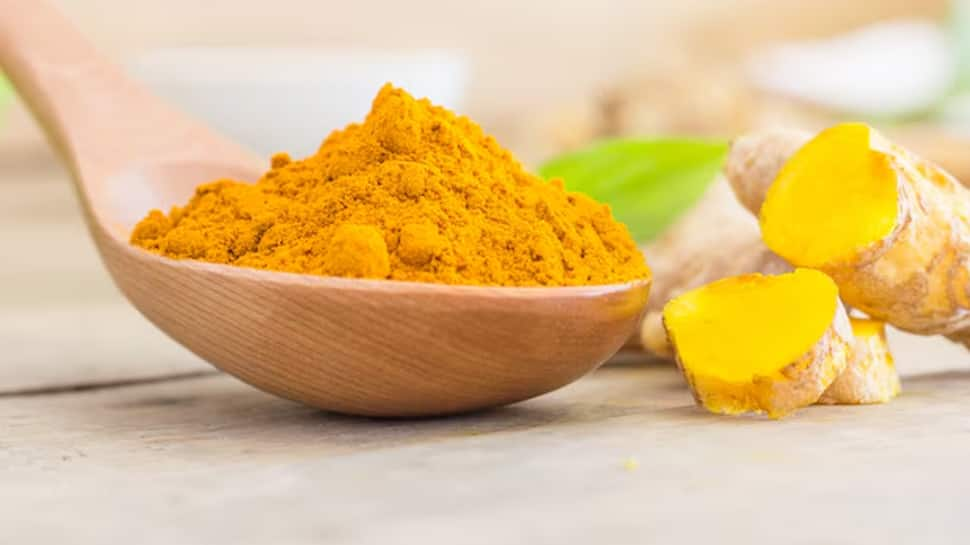10 Superfoods To Combat Impact Of Air Pollution
)
Spinach is rich in antioxidants like vitamin C, beta-carotene, and lutein, which help neutralize free radicals caused by air pollution. It also contains folate and iron, which support oxygen transportation in the blood, improving lung function. Spinach’s anti-inflammatory properties also protect against respiratory issues.

Turmeric contains curcumin, a powerful anti-inflammatory compound that helps reduce lung inflammation caused by air pollution. Its antioxidant properties help detoxify the body from harmful pollutants. Regular consumption of turmeric boosts immunity and protects the respiratory system from oxidative stress, promoting overall lung health.

Green tea is loaded with catechins, antioxidants that help detoxify the body and reduce inflammation caused by pollution. It enhances lung function and protects against free radical damage. Drinking green tea regularly supports respiratory health and aids the body’s natural defenses against pollutants.

Omega-3 fatty acids, found in foods like flaxseeds, walnuts, and fish, reduce inflammation in the lungs and cardiovascular system. They protect against the oxidative stress caused by air pollutants. Omega-3s also enhance lung function and reduce the harmful effects of long-term exposure to polluted air.

Garlic contains sulfur compounds like allicin, which have potent anti-inflammatory and antioxidant properties. These compounds help detoxify the body, reducing the harmful effects of air pollution. Garlic also supports lung health by enhancing immune function and protecting the respiratory system from oxidative damage caused by pollutants.

Black pepper is a powerful antioxidant that aids in detoxifying the body. It enhances the bioavailability of other superfoods like turmeric, boosting their effectiveness in combating pollution-related damage. Black pepper’s anti-inflammatory properties protect the respiratory system and help clear toxins from the lungs.

Flaxseeds are rich in omega-3 fatty acids, which help reduce lung inflammation and protect against oxidative damage caused by air pollution. They also contain lignans, antioxidants that support detoxification and overall immune health. Regular consumption of flaxseeds improves respiratory function and promotes cardiovascular health.

Moringa is a nutrient powerhouse, loaded with antioxidants like quercetin and chlorogenic acid. It helps neutralize free radicals caused by pollution and supports detoxification. Moringa also has anti-inflammatory properties, which protect the lungs and enhance the body’s ability to cope with air pollution.

Berries, such as blueberries and strawberries, are packed with antioxidants like anthocyanins and vitamin C, which help neutralize free radicals from air pollution. Their high antioxidant content supports the immune system and protects the respiratory system from oxidative stress, improving lung health and reducing inflammation.

Whole grains like oats, quinoa, and brown rice are rich in fiber, which helps detoxify the body by promoting digestion and toxin elimination. They also contain essential nutrients like magnesium, selenium, and antioxidants, which protect the lungs and heart from pollution-induced damage and improve overall respiratory function.

(This photo gallery is meant for informational purposes only and must not be considered a substitute for advice provided by qualified medical professionals.)

